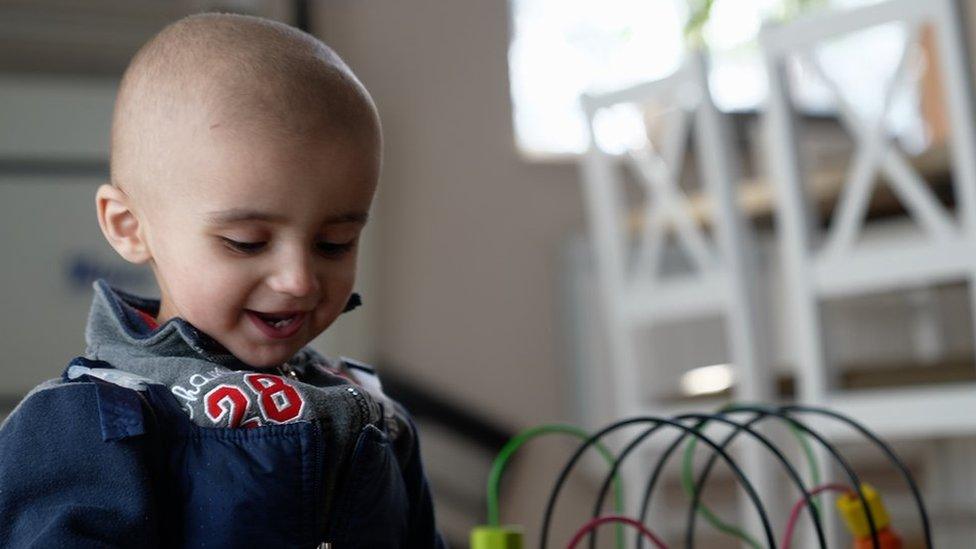Ukraine war: Polish doctor saves family's sight after bombing
- Published
Watch: Olena describes sheltering her children beneath her after a bomb hit their home
"I went into the kitchen and saw a bomb coming towards my window. It was all so quick I didn't know what was happening. I just saw it flying towards me."
It was the morning of 11 March in the city of Severodonetsk in eastern Ukraine, when a bomb crashed into Olena Selichzianowa's home - and her family.
Speaking in Russian, the mother of five-year-old twin boys, Nazar and Timur, describes how she fell to her knees, pulling her sons beneath her to protect them from the pieces of shrapnel. After the bomb's impact she recalls nothing.
All three were blinded by the flying fragments that cut into their arms and faces. Their skin was badly burned, a small shard of glass embedded itself in one of Olena's eyes and her leg was broken.
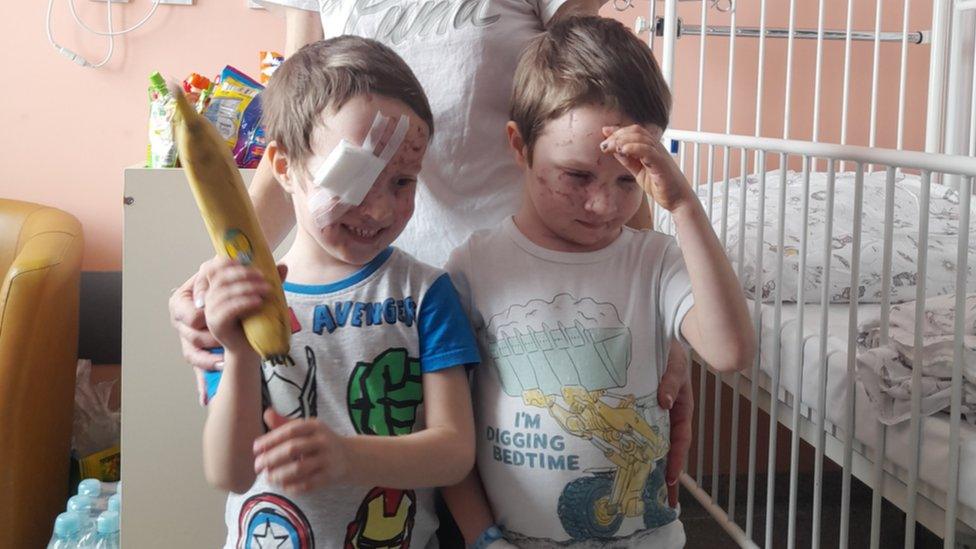
Nazar and Timur have had several surgeries to try to save their sight
The family were pulled from the wreckage and taken to a nearby hospital, but their wounds were so serious they had to be moved quickly.
In Lviv, eye specialist Dr Nataliya Preys was made aware of this family's injuries. Dr Preys sent images of the wounds to her former teacher in Poland, Professor Robert Rejdak, at the Medical University of Lublin.
He knew the three needed to be treated immediately. But the fighting in Ukraine meant it would take a week for Olena, Nazar and Timur to reach Poland.
'A little bit of a miracle'
"They have come from hell," Professor Rejdak told us. "The mum was completely blind, she could only reach out to touch her children. The children were so hungry and tired when they first arrived that they only ate, slept and cried."
He is visibly moved as he recounts their first meeting. Then, his expertise as a leading surgeon at one of Europe's largest eye hospitals takes over.
"We decided to operate on mum. I performed bilateral cataract surgery. The surgery was really complicated because of the wounds, because of a piece of glass inside one eye.
"Fortunately the surgery went really perfectly and Olena sees almost fully two days after. The healing process is perfect so I hope it will be even better - but at least now she can see her boys and look around."
The little boys' journey to health will take longer. Nazar has lost his eye.
Professor Rejdak's team performed retina surgery, and is now planning further cataract surgery.
"The twins also have really massive ocular trauma," he says. "We are hoping the vision will be good, but they need longer treatment."
If Olena and her boys had reached Lublin just a few days later the consequences would have been stark.
"They would be blind because it was the last moment to start the treatment, it already took seven days from the accident and in ocular trauma time is crucial."
When asked if it was a miracle to be able to save their sight, Professor Rejdak says, "a little bit".
'Jumpy and struggling to sleep'
Back on the ward the little boys are playing. Although it is Nazar who has lost his eye, he seems more protective over his brother Timur, who is a little shyer and more withdrawn.
"A psychologist is helping them, giving them tablets so they can sleep," explains Olena. "They are feeling better and have had many operations. But they saw the bomb fall on them. They are a little calmer but they are jumpy and they struggle to sleep."
Before the war, Olena was a cook at the local school. Once her family have healed, would she want to go back?
"No," she answers quickly. "Everyone has been so kind here, I want to stay. Also my home has been destroyed, there is nothing left."
Professor Rejdak is among those helping to find somewhere for this family to live. Once Olena has recovered and only when she is ready, the hope is she that she will find a job.
This is not the only family that needs help. Professor Rejdak is providing virtual consultations with his colleagues in Ukraine. Thanks to his teaching work he has a network of specialists. He works closely with his former pupil Dr Preys and advises who should be evacuated to receive surgery in Lublin.
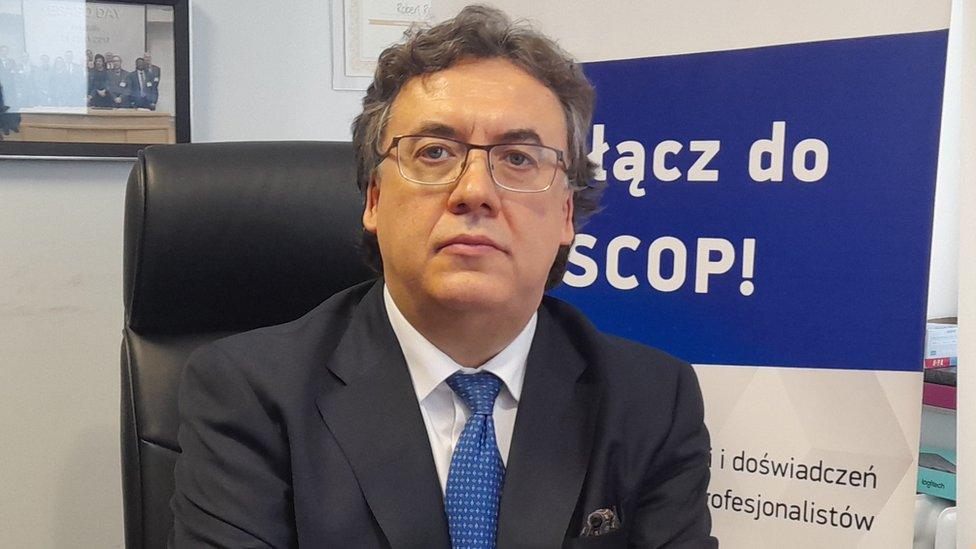
Professsor Rejdak is preparing for more people arriving from Ukraine
If evacuation is not possible, then he gives advice on how doctors in Lviv should proceed with treatment.
He firmly believes virtual medicine is key to helping the victims of this war. Medical supplies and donations are also being sent to Ukraine by a team of people brought together under the umbrella of the Medical University of Lublin.
The work is endless, as more and more people are injured in the fighting. Professor Rejdak and his team will be operating on the twins again in the coming days, but they are also preparing for new arrivals who will be coming to the hospital from Ukraine.
Additional reporting by Rebecca Hartmann and Paul Cooper

War in Ukraine: More coverage

Related topics
- Published25 March 2022
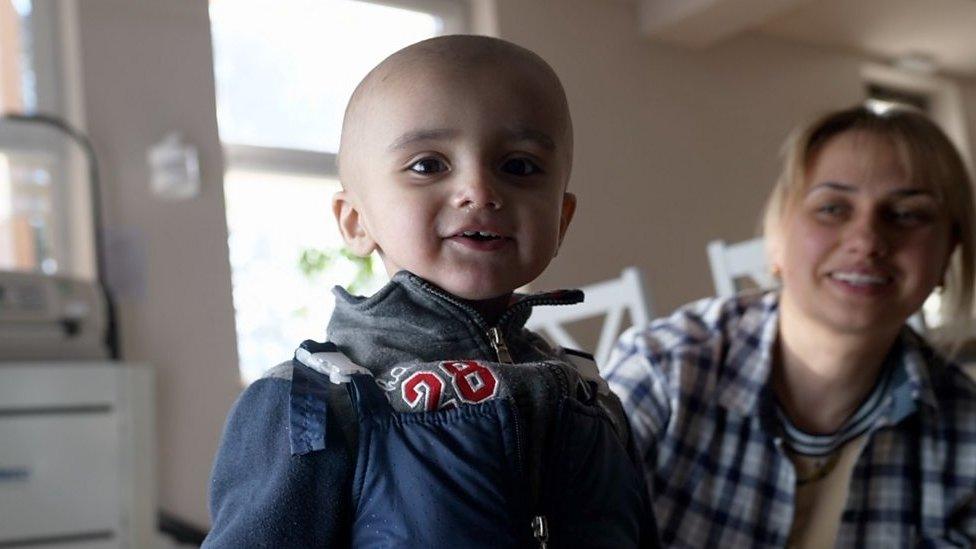
- Published15 March 2022
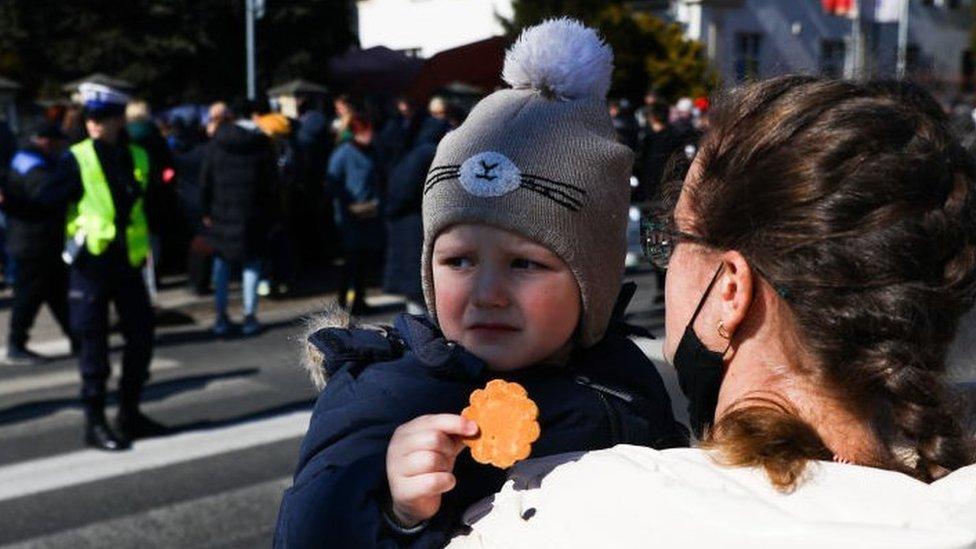
- Published25 March 2022
